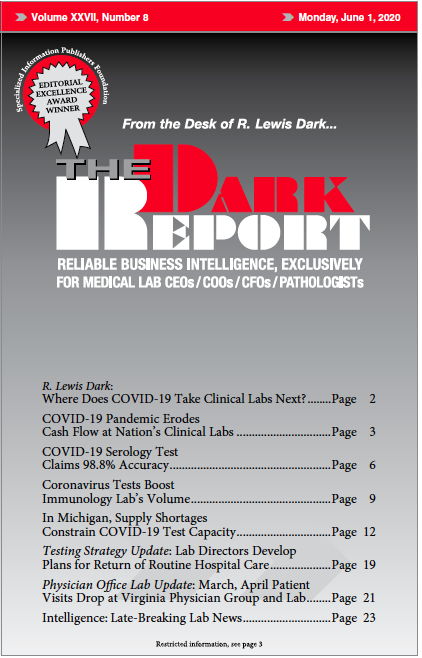DURING THE CARONAVIRUS PANDEMIC, gastroenterology and other physician groups with in-house medical laboratories—like most medical practices and clinical laboratories in the United States—have seen a sharp drop in patient visits and specimen volume. That drop occurred at the same time gastroenterologists experienced strong growth in patient visits and in the specimen volume they sent to anatomic pathologists, said Kenneth N. Josovitz, MD, MPH, President of Associates …
March, April Patient Visits Drop at Virginia Physician Group and Lab Read More »
To access this post, you must purchase The Dark Report.


